20 Remake Culture Clashes
Because sometimes subtitles just won't do...
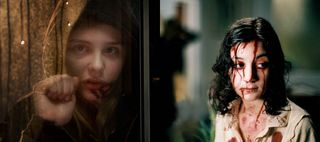
Let Me In (2010)
The Original: Let the Right One In (2008). Tomas Alfredson's movie version of John Ajvide Lindqvist's novel managed to single-handedly give the vampire genre a shot in the chest, plant Swedish filmmaking firmly onto our radar, and satisfy all walks of moviegoer from horror hounds to world cinema buffs, to anyone with decent taste. No mean feat for a small production, with two young unknown leads tackling controversial material. Slipped onto a number of critics' top ten lists of the year, and even the decade…
The Remake: US redo Let Me In arrives in UK cinemas this week. News of a remake was cooly received initially, but the movie gradually managed to build serious amounts of buzz. It helped that Matt Reeves assembled a killer cast, with teen talents Kodi Smit-McPhee and Chloe Moretz playing the adolescent companions.
What's Missing? Well, Reeves ditches one of the more shocking shots from the original and throws in a superbly inventive car crash sequence, but other than the move to New Mexico, this sticks closely to the original's template. The result is a very decent movie, that would be all the more exciting if you haven't already seen Let the Right One In . Check out the Total Film verdict here .

The Departed (2006)
The Original: Infernal Affairs (2002). A gripping high concept brings zip to this Hong Kong crime thriller. Tony Leung is the cop who goes undercover in a Triad gang, while Triad member Andy Lau rises through the ranks of the police. Despite the absence of Asian action cinema staples such as showy gunplay and balletic slo-mo, the film remains accessible thanks to its efficient thrills and solid handling of a potentially hokey premise. The title's still a slightly naff pun though.
The Remake: Remakes rarely come more successful than Martin Scorsese's The Departed : the auteur finally bagged his much deserved Oscar, the worldwide box office welcomed it with massive kerchings, and pretty much everyone loved it. There's superb support from Mark Wahlberg, Alec Baldwin and Jack Nicholson, but Scorsese's real coup is grabbing Leonardo DiCaprio and Matt Damon for the leads: the former pushing his sanity to breaking point, the latter effectively playing against type to go all-out sleazily charismatic.
What's Missing? The basic story template remains the same, but by shifting the action to Boston, Scorsese brings the tension, insight and unmatchable excitement of his best crime dramas to The Departed .

The Uninvited (2009)
The Original: A Tale of Two Sisters (2003). This South Korean movie is one of many Asian frighfests that has inspired a Hollywood remake. The sisters of the title return to their family home after a spell in a mental institute. It's hard to know what's more unsettling: the girls' creepy homestead, or their unhinged stepmother (Yeom Jeong-ah).
The Remake: The Uninvited attempted to cash-in on the glut of Asian horror remakes that have hit US cinemas. Sucker Punch 's Emily Browning is the lead girl this time around (and the only one who stayed in the institute), and Elizabeth Banks is shortchanged as the stepmother. Attempts to keep the rating at PG-13 didn't help build the atmosphere in this slick but soulless remake.
What's Missing? Erm… sadly quite a lot. Some dodgy FX hinder the effectiveness of the creeps, and though the twist remains intact, the additional subplots fail to add anything of value.
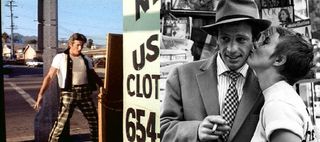
Breathless (1983)
The Original: À bout de souffle (1960). Jean-Luc Gordard's masterful New Wave leader was recently re-released with a newly restored print. There's so much to say about this movie that it's dominated a thousand film studies lessons: Godard's ballsy jump-cuts, his postmodern noir nods, the rebellious central couple who redefined the movie romance… Don't let all the academic attention put you off though: this is essential viewing for any fans of exhilarating cinema.
The Remake: The action's shifted to Los Angeles, as Richard Gere's drifting cop killer falls for a French lovely (Valérie Kaprisky), in a kinda twist on the presence of American actress Jean Seberg in the Parisian original. Gere and Kaprisky certainly pack the chemistry, and taken out of context the movie's quite watchable. But surely everyone knows that you can't just copy 'cool'? It pretty much defeats the point…
What's Missing? Aside from the sense of cool, Breathless stops short of imitating Godard's famous closing scene…
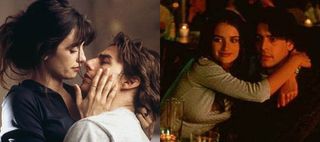
Vanilla Sky (2001)
The Original: Open Your Eyes (1997). Alejandro Amenábar directs this wonderful, moving, sci-fi-tinged romance. César is the kind of character you'd like to slap: a handsome, rich playboy living the high life. Things go downhill for him when his obsessive ex doesn't take kindly to his relationship with new flame Sofía (Penélope Cruz): the scorned woman crashes his car, killing herself and destroying his face. Amenábar juggles the non-linear narrative with precision.
The Remake: Cameron Crowe didn't stray too far from the original in his remake: he even cast Cruz in the same role. Admittedly it was a bit more shocking to see Tom Cruise's famous visage mangled beyond recognition, and the Times Square opening is ace, but otherwise Crowe pretty much follows the original scene-for-scene.
What's Missing? There's a few small differences, particularly with the ending. Crowe's use of the psychiatrist character (played here by Kurt Russell) and the final shot diminish some of the ambiguity that made the original so memorable.
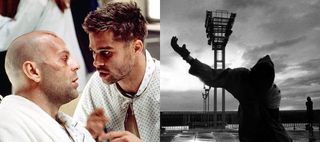
Twelve Monkeys (1995)
The Original: La jetée (1962). French filmmaker and artist Chris Marker directed this black-and-white science fiction short, which is made up entirely of still photos (with the exception of one shot). Sometime after World War Three, a survivor living underground is sent backwards and forwards in time to look for a means of salvation.
The Remake: Terry Gilliam used Marker's short film as the inspiration for sci-fi hit Twelve Monkeys (Gilliam's most commercially successful film). Taking the bare bones of La jetée , the US version stars Bruce Willis as a survivor living underground in the aftermath of a deadly virus. He's given the chance to erase his criminal record by heading back in time to investigate.
What's Missing? Well there's actually a considerable amount added here, as Gilliam beefs up the short to feature length. The musings on memory, time and experience aren't so keenly felt in the update, but that doesn't prevent it from being an extremely solid sci-fi thriller.
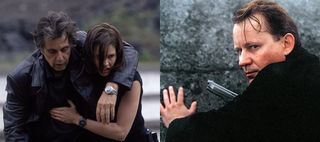
Insomnia (2002)
The Original: Insomnia (1997). Stellan Skarsgrd starred in this convention-defying noir thriller from Norwegian writer-director Erik Skjoldbjærg. Set in the city of Tromsø, located above the Arctic Circle, disgraced copper Engström is called in to investigate the murder of a young girl, as the town's perpetual daylight slowly starts to get to him.
The Remake: Christopher Nolan grabbed the world's attention with Memento , and decided to follow that up with another twist on the noir format. Nolan's newly acquired heft is evident in a cast list that features Oscar winners Al Pacino, Robin Williams and Hilary Swank. Sticking fairly closely to the plot of the original, Insomnia is perhaps Nolan's most straightforward film, narratively.
What's Missing? While the remake is an interesting thriller in its own right, it doesn't quite plumb the murky moral depths of the original: Al Pacino's cop is in trouble for doing something for the 'right' reason, and the revised ending ties things up in a more easy-to-digest fashion.
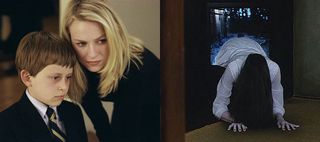
The Ring (2002)
The Original: Ringu (1998) was a huge hit in its native Japan, and can pretty much be held accountable for the influx of J-horror into the Western market, shaking up the genre with some of the genuine chills that had too long been absent from the cinema. The premise is concisely effective (particularly if you watched it in the comfort of your own home): watch a mysterious video tape, receive a creepy phone call, and seven days later you'll be dead.
The Remake: Gore Verbinski took the reins on this American remake, which was surprisingly well received by critics and cinemagoers alike. Thankfully Verbinski refuses to mess with the formula too much, and resists the temptation to cash in on too many cheap shocks, preferring instead to milk the sinister seven day waiting period for all it's worth.
What's Missing? If the remake lacks anything, it probably down to the fact that the Japanese urban mythology loses something in the translation. And Ringu 's killer scary moment isn't quite as terrifying when rendered with a CGI sheen.
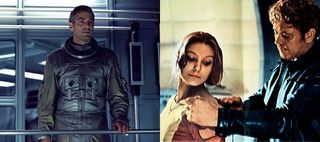
Solaris (2002)
The Original: Solaris (1972) is director Andrei Tarkovsky's adaptation of Stanislaw Lem's sci-fi novel. This isn't a space opera though, as the haunting movie sees psychologist Kris Kelvin (Donatas Banionis) called to a space station that orbits the titular planet to help out with a number of emotional problems that the crew are facing. Shortly after his arrival, he begins to be plagued by visions of his wife, who committed suicide some 10 years earlier.
The Remake: George Clooney and Steven Soderbergh went outside their collaboration comfort zone for the Hollywood adaptation of Lem's novel. Clooney gives a suitably distraught performance, but this streamlined version failed to grab much of an audience, despite the (considerable) lure of a George Clooney buns shot.
What's Missing? Well, the newer film clocks in at over an hour shorter than its predecessor, and fails to get under the viewer's skin in quite the same way, though it's a decent metaphysical sci-fi entry point for the faint of heart.
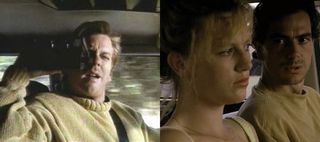
The Vanishing (1993)
The Original: The Vanishing (1988) is a tense Dutch thriller in which a woman is mysteriously abducted from a gas station, leaving her partner Rex (Gene Bervoets) obsessed with tracking her down. When he does finally come face-to-face with his girlfriend's abductor, a creepy, unnerving resolution is on the cards.
The Remake: Director George Sluizer remade his own film five years later for an American audience. Kiefer Sutherland and Sandra Bullock played the couple in the updated version, and Jeff Bridges is the manipulative abductor. It's hard to believe that this actually came from the same director as the original, as the final product lacks any of the gravity that made the original so terrifying.
What's Missing? Any sense of fear, which is rendered obsolete by the appalling tacked-on Hollywood ending. An insult to the unique thrill of the original.
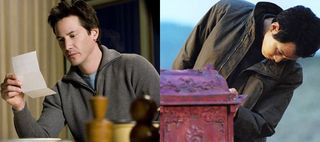
The Lake House (2006)
The Original: Il Mare (2000) was a South Korean romance, concerning a central couple who were sharing love letters despite the fact they were living two years apart. Though the premise sounds dodgy, it's easy to get swept up in the nonsense, and there are enough interesting chronological twists to hold your attention, particularly as the two temporally-challenged lovers try to arrange to meet each other.
The Remake: Speed stars Keanu Reeves and Sandra Bullock were finally reunited (after Keanu skipped Speed 2 ) for a fairly congruous remake of Il Mare . The new version benefits from the pair's chemistry, and it finds ways to make them meet before the finale. Perhaps a bit too much of an unnecessary strain on the noggin for a date movie, it's still surprisingly watchable.
What's Missing? The pay-off of The Lake House lacks the melancholy resonance of its Korean incarnation, as it trades up for something more satisfyingly 'Hollywood'.

Dark Water (2005)
The Original: Dark Water (2002) was another spooky horror from Hideo Nakata, the director behind Ringu . This movie isn't without its similarities to his earlier hit, as a recently-divorced mother (Hitomi Kuroki) moves into an apartment with her young daughter. It's not long before an ominous damp patch appears on the ceiling, a mysterious red bag keeps showing up, and another creepy kid is lurking about.
The Remake: Jennifer Connolly was the mother on the verge of a breakdown in this American redo, which must have sounded like a mega-hit in-waiting after the crossover success of J-horror remakes The Ring and The Grudge . Her performance keeps things the right side of ambiguous, but director Walter Salles wastes other cast members (Tim Roth, John C. Reilly, Pete Postlethwaite) in underwritten roles.
What's Missing? The most important ingredient missing here is proper fear. Salles creates a suitably atmospheric environment, but the end result feels closer to a drama than a horror.

The Last Kiss (2006)
The Original: L'utimo bacio (2001). Directed by Gabriele Muccino before he went on to make The Pursuit of Happyness and Seven Pounds with Will Smith, L'utimo bacio (translated as The Last Kiss ), is the story of Carlo (Stefan Accorsi), a man who prematurely hits a midlife crisis when his girlfriend announces that she's pregnant. Conveniently, an 18-year-old bombshell turns up on the scene just in time, all the while Carlo's mates are suffering with problems of their own.
The Remake: Zach Braff starred in the US remake, and the Scrubs man apparently dabbled with Paul Haggis' script a little to hone it towards his sensibilities. The dilemmas faced are much the same this time round, although a slight stretch of the audience's disbelief is required when The OC 's Rachel Bilson seems to find Zach's cartoonish countenance irresistible.
What's Missing? A sequel. Muccino revisited the characters 10 years on in Baciami ancora , which was released in Italy earlier this year.

Wicker Park (2006)
The Original: L'appartement (1996) starred Vincent Cassel as Max, a writer who's about to get married and settle down. All's going well until he catches a fleeting glimpse of the love of his life, and 'one that got away', Lisa (played by Cassel's real-life missus Monica Bellucci). He becomes obsessed with her, and things get a little confusing when he starts to date a girl who looks a lot like Lisa…
The Remake: Josh Hartnett took the lead in the US remake, in which he's torn between Troy babes Diane Kruger and Rose Byrne. It follows the original's time-jumping narrative, which sheds light on relationship histories and provides changing perspectives, but with none of the boldness of L'appartement .
What's Missing? Cassel's crackly, electric screen presence, and Bellucci's allure. Josh Hartnett can't make the material rise above melodrama, but he's a godsend considering that Paul Walker and Freddie Prinze Jr were also considered for the role.

The Birdcage (1996)
The Original: La Cage aux Folles (1978) was based on a stageplay, and went on to become an enormous hit, spawning two sequels, a Broadway musical, and the American remake. It concerns a gay couple, Renato Baldi (Ugo Tognazzi) and Albin Mougeotte (Michel Serrault), involved in the 'drag' industry, and the mild social quandary that arises when Baldi's son announces his engagement. The flamboyant pair have to tone things down a notch to convince as straight in front of the their future daughter-in-laws's conservative parents.
The Remake: Mike Nichols directed the starry US remake, which arrived almost two decades after the French movie. Robin Williams and Nathan Lane are the campy couple, and Gene Hackman is the grouchy potential father-in-law. Williams opted to play the straight(er) man, allowing Lane to run with the more OTT histrionics, before everything descends (inevitably) into farce.
What's Missing? The story is uprooted to Miami Beach, and a few Stephen Sondheim songs are thrown in for good measure, but this redo actually captures much of the charm and humour of the original.

The Eye (2008)
The Original: The Eye (2002). Directed by the Pang Brothers, the guys behind Bangkok Dangerous (which was also gifted with a less than flattering remake), The Eye does a lot with it's minimal premise. A young girl who has been blind since infancy receives a cornea transplant at the age of 20. The fact that she sees mysterious figures that seem to predict an impending death is a slightly unsettling side effect.
The Remake: Jessica Alba took the lead in one of the poorest quality US versions of an Eastern horror flick. The basic premise is followed, but Jessica Alba struggles in the lead role, and the film seems to use all of the cheapest stylistic flourishes that seem to blight Asian horror redos.
What's Missing? The remake lacks the visual invention that made the original such a chiller; as we see more and more of the apparitions, they get considerably less scary.

Shall We Dance? (2004)
The Original: Shall We Dance? (1996). It's rare when a Japanese movie that's not a horror or animation arrives on our shores to critical fanfare. In fact, this sweet little movie feels almost European, with its lightly-handled romantic flourishes. An office-cubicle drone finds his spirit invigorated when he gets involved in a spot of clandestine ballroom dancing, much to the chagrin of his suspicious wife.
The Remake: Richard Gere starred in the Hollywood remake. He plays a Chicago lawyer who impulsively signs up for dance lessons in the hope of getting to know Jennifer Lopez, but finds he has a fondness for the rhythms. Susan Sarandon is his other half, and Stanley Tucci and Richard Jenkins have fun support roles.
What's Missing? The cultural transplant just doesn't work here. Within the Japanese setting, the boogying did feel a bit taboo, but modern metrosexual (and Chicago star) Gere would have no need to mask his passion. And the student and teacher fail to reach the same respective levels of amiable naivety and enigmatic allure as their Japanese counterparts.
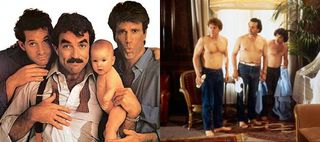
Three Men and a Baby (1987)
The Original: Trois homes et un couffin (1985), which translates as Three Men and a Cradle not a Coffin , by the way. That would've been an altogether more disturbing prospect. The basic premise will likely be familiar (if only through the remake), with three bachelors faced with looking after a baby that gets left at their swish pad. Like its American offspring, it had a sequel (although, as the title suggests, 18 ans après arrived in a much tardier fashion than the US follow-up).
The Remake: In the 80s, casts rarely came more starry than the central triptych of Tom Selleck, Steve Guttenberg and Ted Danson. They may not have much pulling power now (or any, Guttenberg's case), but there's charm to spare in this still-likeable family movie, which regurgitates the original plot almost verbatim.
What's Missing? Not much to be fair, which could be why it still stands as the highest-grossing US remake of a French movie.

Quarantine (2008)
The Original: [Rec] (2007). Kind of a mutant crossbreed of Blair Witch and 28 Days Later , this Spanish horror proves quite how intense found-footage movies can be when handled right. [Rec] is an extremely lean beast too, clocking in at under 80 minutes, but given its intensity, you'll be grateful of that fact.
The Remake: Quarantine came extremely hot on the heels of its Spanish antecedent, but with such a killer premise you can hardly blame the producers for not hanging around. A TV reporter and her cameraman are following fire crew who are called to an incident at an apartment block. The residents have become infected with a mystery disease and are turning rabidly violent. Once again, you're with the cameraman all the way…
What's Missing? The religious connotations are replaced with something a little more political, but otherwise Quarantine slavishly sticks to [Rec] 's blueprint. The predictably glossy American version lacks some of the ferocious realism of the Spanish original, though.
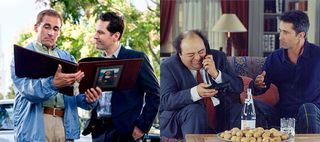
Dinner for Schmucks (2010)
The Original: Le diner de cons (1998). A simple enough comedy conceit: arrogant businessman Pierre Brochant (Thierry Lhermitte) attends a weekly dinner, to which his acquaintances all bring along an idiot to mock. Pierre believes he has found the perfect dolt in the form of Francois Pignon (Jacques Villeret), but an unexpected back injury leaves Pierre stuck with his target all night.
The Remake: Paul Rudd and Steve Carell take on the roles of business man and dolt respectively, but the Anchorman co-stars don't generate an iota of the laughs that their previous collaboration merited. Director Jay Roach (whose credits include Austin Powers and Meet The Parents ) is at the helm of this overstuffed flick, which contains more decent comic actors than it does actual laughs.
What's Missing? The remake doesn't have the heart to be as mean spirited and acerbic as its Gallic forebear, and Roach wastes his cast's talents by replacing witty wordplay with grating slapstick.

I'm the Editor at Total Film magazine, overseeing the running of the mag, and generally obsessing over all things Nolan, Kubrick and Pixar. Over the past decade I've worked in various roles for TF online and in print, including at 12DOVE, and you can often hear me nattering on the Inside Total Film podcast. Bucket-list-ticking career highlights have included reporting from the set of Tenet and Avengers: Infinity War, as well as covering Comic-Con, TIFF and the Sundance Film Festival.
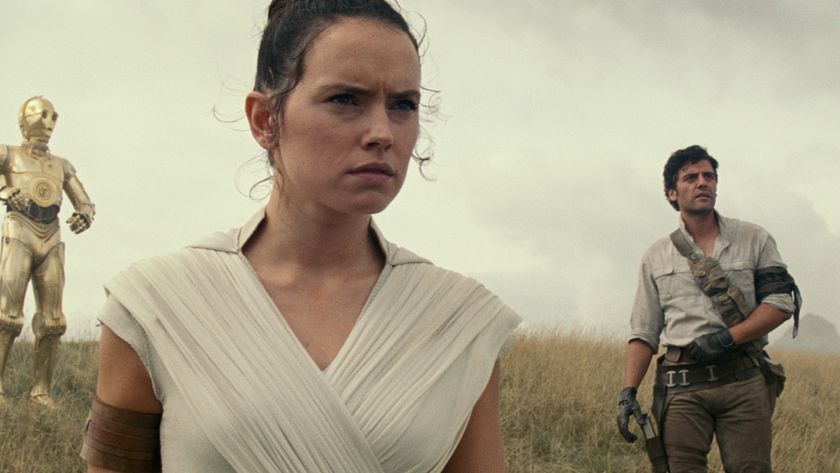
Despite those retirement reports, Lucasfilm boss Kathleen Kennedy is "very involved" in the Rey Star Wars movie, according to Daisy Ridley
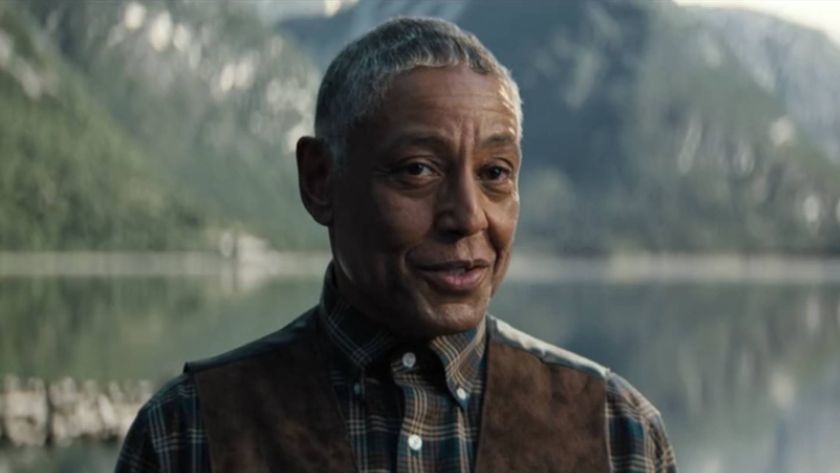
The Electric State star Giancarlo Esposito explains why adapting the bleak novel into a family friendly adventure was the right decision: "I'm going to bring my children with me"


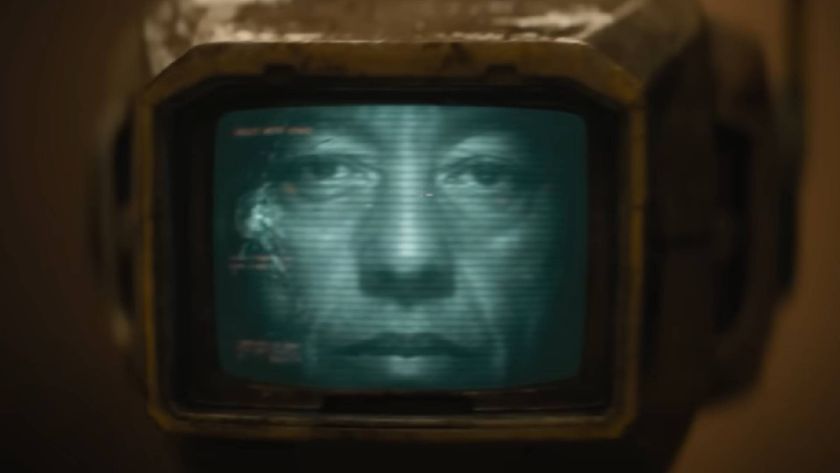
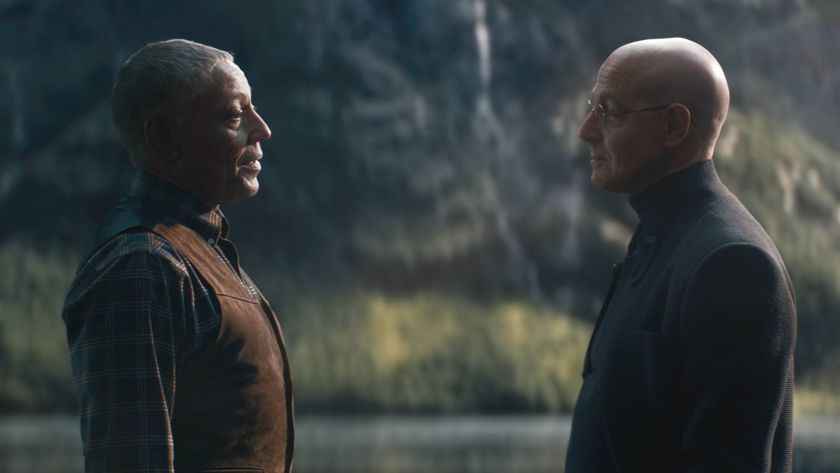
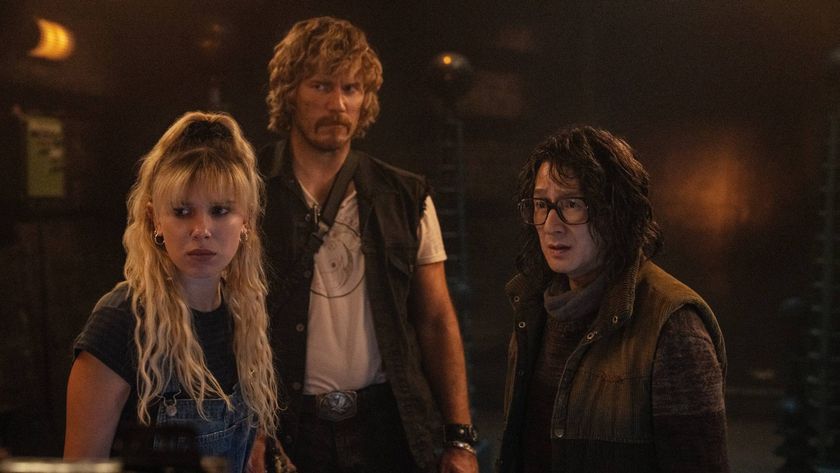
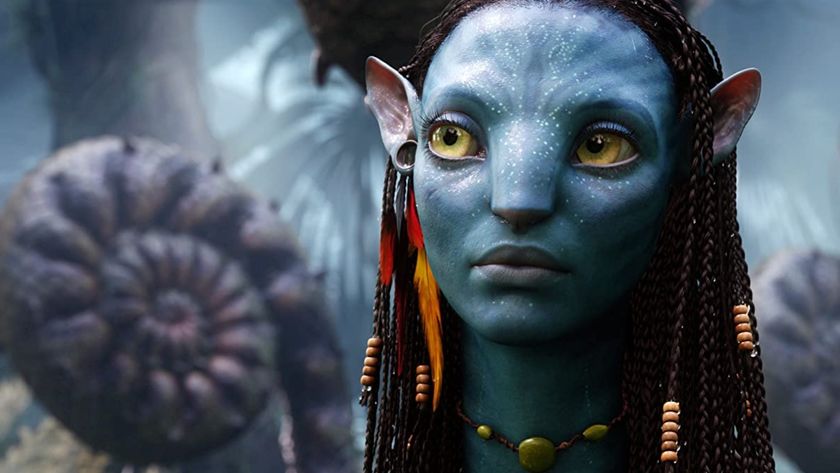







Despite those retirement reports, Lucasfilm boss Kathleen Kennedy is "very involved" in the Rey Star Wars movie, according to Daisy Ridley

The Electric State star Giancarlo Esposito explains why adapting the bleak novel into a family friendly adventure was the right decision: "I'm going to bring my children with me"



